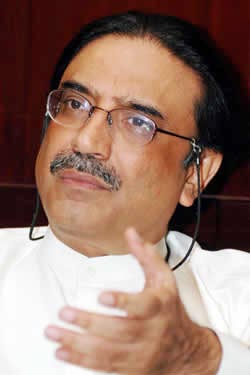Afghanistan, Kabul, 8 September / Trend corr A.Hakimi/ According to Afghan experts, the Armed Forces and Inter-Services Intelligence (ISI) of Pakistan are the main force determining country's policy. Therefore, election of Asif Ali Zardari as President will not change Pakistan's strategic policy towards Afghanistan.
According to experts, Pakistan is the main shelter for Taliban rebels and Pakistani ISI is the organizer of terrorism acts in Afghanistan.
The late wife of the newly elected President Benazir Bhutto was popular as the 'Mother of Taliban'. She formed the Taliban rebels with the assistance of Arab countries, United States and UK.
Zardari was elected president two days ago. He will be inaugurated in several days.
Afghan officials hope Zardari will pursue a new policy for both countries' security, as well as for struggle against terrorism. "Afghanistan does not wait from Zardari, elected the President of Pakistan, any changes in the sphere of combating terrorism and the policy with regards to Afghanistan," Chairman of Afghanistan Senate's International Commission, Mohammad Elm Izadyar, told Trend on 8 September. "After Peoples Party in Pakistan took the power in hands, this country interfered in the internal affairs of Afghanistan, supported rebels of Taliban, and the new President will also repeat this," he said.
According to Izadyar, under the conditions, Pakistan stands face to face with different political crises. "At present, domestic security and Armed Forces of Pakistan are located under the threat of some radical rebel groups of Taliban," he added. Izadyar described the political differences, which arose in the country between the parties, as one of the internal problems of Pakistan. In the opinion of the experts, the Armed Forces and security structures will take the control on the country in their hands in the case of confrontation in Pakistan.
Afghan people want the new Government of Pakistan not to intervene in the internal affairs of this country, not to support rebels of Taliban and to change its policy in combating terrorism.
The correspondent can be contacted at [email protected]






